Signs of depression in children
Although it’s most likely seen in the mid-teen years, childhood depression can start at any age. Your child might not have the words to understand or explain depression, if you’re seeing these symptoms, talk to your family pediatrician.
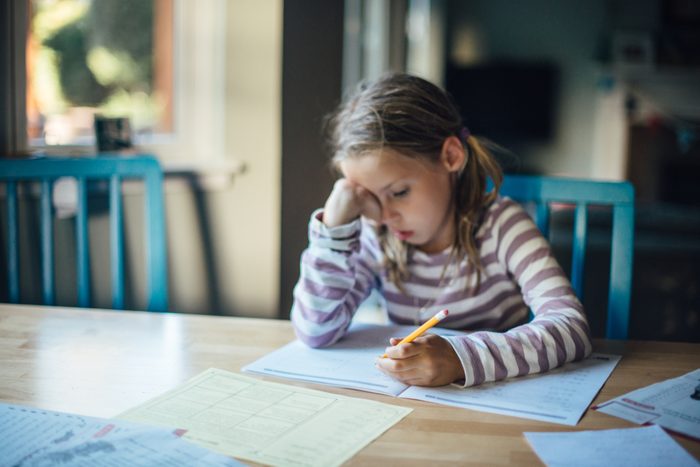
Your child’s grades are dropping
Childhood depression makes it hard to keep focused, which could make it hard for your child to listen to a teacher or stay on task with homework. If your typically stellar student is suddenly getting lower grades than usual, you might want to examine what else is going on. “A lot complain about loss of attention and concentration, not feeling blue,” says John Walkup, MD, director of the division of child and adolescent psychiatry at Weill Cornell Medical College and New York-Presbyterian Hospital. “They get confused and have to do stuff over and over again—they feel like their mind’s not working right.”
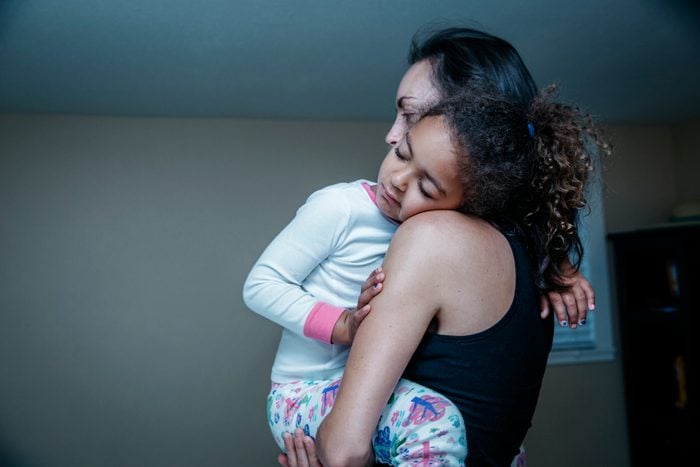
Your child sleeps in but is still tired
Teens are known for sleeping late, but an uncharacteristic change in sleep habits can be one of the depression symptoms to watch for. Some children will want to spend their entire afternoons napping, and people with depression will often wake up early and won’t be able to get back to sleep. Their sleep isn’t restorative, meaning no matter how much they snooze, they still feel exhausted the next day. That fatigue can get in the way of children’s academic and social lives, says Lynne Siqueland, PhD, psychologist at the Children’s and Adult Center for OCD & Anxiety in Plymouth Meeting, Pennsylvania and member Public Education Committee for the Anxiety and Depression Association of America. “Usually, the kids or teens report feeling tired, or the impact of sleep becomes apparent,” she says. “They’re late or missing things, or not doing homework because they’re sleeping in the afternoon. It impairs how they’re living.”

Your child expresses feelings of worthlessness
Dig a bit deeper if your child says things like “nobody likes me” or “I’m worthless.” A therapist can probably help your child direct those thoughts from untrue pessimism. “Identifying those maladaptive depression-oriented thoughts and finding a better way to look at it can be helpful,” says Debra Kissen, PhD, MHSA, clinical director of Light on Anxiety Treatment Center. “It’s challenging that thought. Is there any other way to look at it?”

Your child isn’t getting invites—and doesn’t mind
People with depression tend to isolate themselves from others. Teens who are particularly good at sensing that withdrawal might stop extending invites to depressed friends. “Peers don’t necessarily reach out and engage, and the person feeling poorly might not seek out pleasurable experiences—and if they do, they won’t necessarily enjoy it,” says Dr. Walkup. “They’re not fun to be around, so they fall out of the social fabric.” (Find out the 13 common words and phrases that may signal depression.)
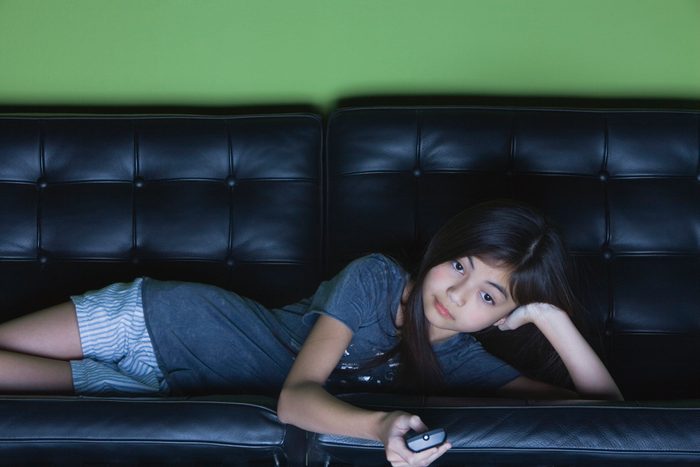
Your child rejects fun plans
With all the stress of Covid-19, schoolwork, friendship drama, sports performances, and music auditions, it’s perfectly reasonable for a child to feel down at any given time. But watch out if your child’s normal stress relievers aren’t bringing happiness anymore, one of the common depression symptoms. “We have vacations and dinner with friends because such activities lift our spirits,” says Dr. Walkup. “Depressed people don’t respond to that well, or find pleasure makes them uncomfortable because they want to respond how people want them to respond, but they can’t.”

Every conversation feels tense
While the blues are a warning sign of adult depression, kids’ emotions could look like teen angst, which might make it hard to recognize. “The tricky thing is that many kids, including teens, may not look just sad or down, but it comes out in irritability,” says Dr. Siqueland. Typical teen moodiness shows up in swings—your child might be cranky right after school but feel better by dinnertime—but if your kid snaps at you no matter what the situation, keep an eye out for other depression symptoms.

Happy memories don’t cheer your kid up
Some children are chronically unhappy but not clinically depressed. To tell the difference, observe how your kid reacts when talking about happy memories. Someone who’s just unhappy will light up while recollecting those good times, but reminiscing won’t cheer up a depressed child. “If you ask about a fun time, we re-experience the pleasure of that,” says Dr. Walkup. “When you do that with someone who’s depressed, they say, ‘Don’t remind me of that. That was another time.’” Similarly, a depressed child often can’t imagine a happy future, he says. On the other hand, chronically unhappy children react with unhappiness when challenged by normal stressors like exams or tension with friends.
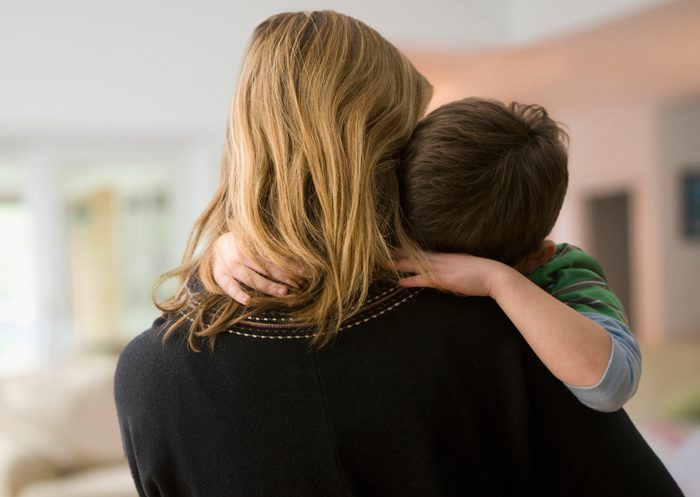
Your child seems to cry more than usual
Crying is a perfectly healthy way to express emotion. But if your generally stoic kid starts sobbing regularly, examine the situations that seem to trigger your child. If your gut tells you something is off, don’t write it off as hormones. “What other behavior does it seem like it’s associated with, such as shutting down or not wanting to do other activities that in the past they were interested in doing?” says Dr. Kissen. “It’s if something doesn’t feel right, and first checking in with the pediatrician.”
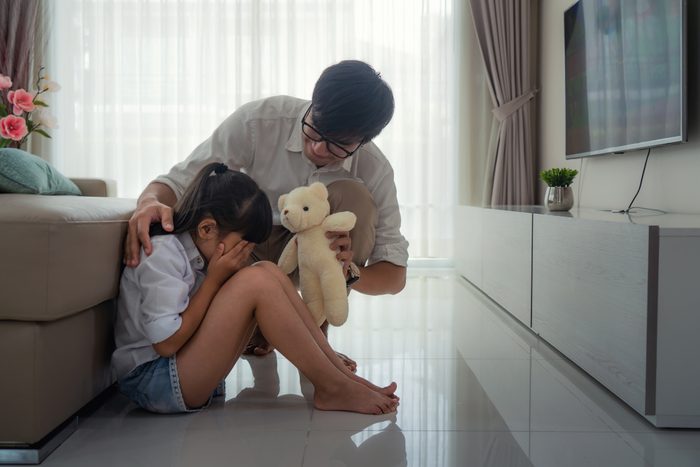
Your kid doesn’t want to be comforted
Feeling blue is normal, especially after an upsetting life event, but typically people want emotional support during hard times. A depressed child, on the other hand, might squirm away from the shoulder you extend, knowing it won’t make the sadness go away. “If you give someone grieving a hug, they say, ‘Thank you. It’s good that you’re here to be supportive of me,’” says Dr. Walkup. “Depressed people say things like, ‘Giving me a hug makes me feel worse because I want to feel better, but I can’t.’”

Your child makes regular visits to the school nurse
Physical pain, like a stomachache or headache, could crop up if your child has depression. If your kid has been visiting the school nurse more than usual, it could be a red flag. “Nurses often see these kids before other people and can recognize if they’re stressed or depressed,” says Dr. Siqueland.
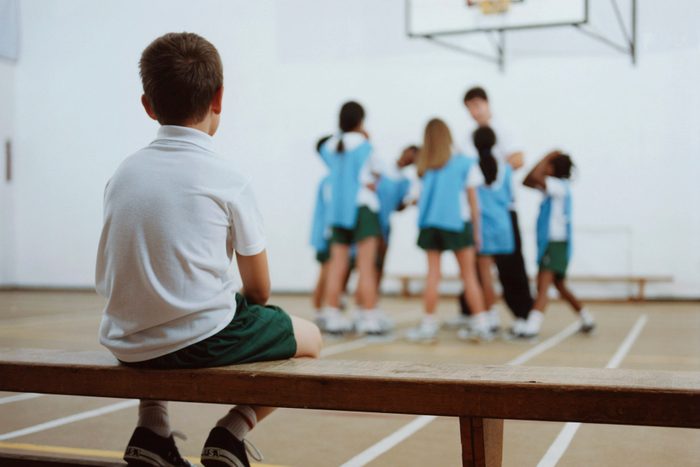
Your kid seems indifferent
Losing interest in the soccer team you signed your kid up for is one thing, but depression symptoms can make a child stop caring about everything, from attending school to hanging out with friends. “It doesn’t target just one thing in life, but blankets most things one has contact with,” says Dr. Kissen.
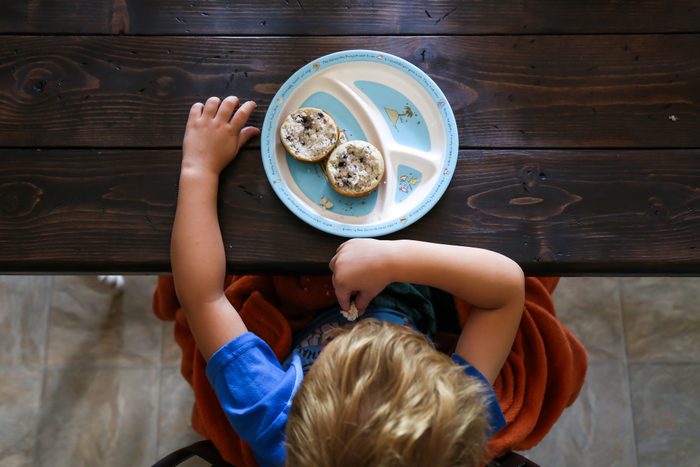
Your child has new eating patterns
A change in appetite could be a symptom of depression, whether your picky eater is suddenly binging on sugar or your foodie doesn’t seem interested in eating anymore. Kids do shift their relationships with food naturally as they grow up, but be aware if a major shift is buddied with other signs of depression. “Sometimes you go through spells and you’re not that into food and then more into food,” says Dr. Kissen. “It’s the cluster of symptoms it hangs out with, but in and of itself could have so many explanations. (Watch for these signs of high-functioning depression.)
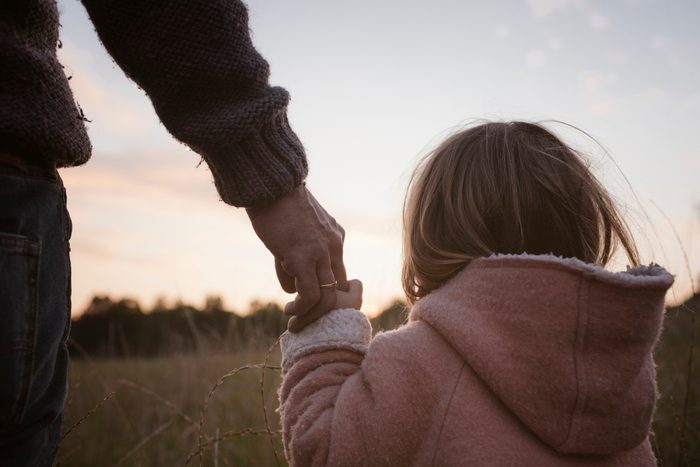
Your family has a history of depression
While some people develop depression without a family history of it, the mental health disorder tends to run in families, says Dr. Walkup. Even if none of your relatives received a formal diagnosis, consider if anyone showed any signs. If the answer is yes, your child is more at-risk. “The first thing to do, even before looking for signs and symptoms, is asking if there’s a family history of depression,” says Dr. Walkup. “You get a car seat, get a helmet for your bicycle, put barriers across stairs and hooks on cabinets under the sink—but you don’t tell people to look at their family history.” Now, find out 14 of the most dangerous misconceptions about depression.
